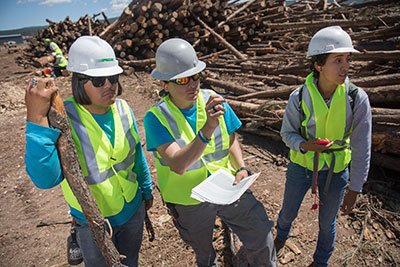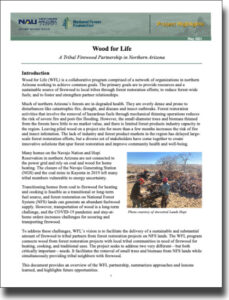Native American Forest and Rangeland Management Program
The ERI’s Native American Forest and Rangeland Management Program, directed by Jonathan Martin, facilitates collaboration between tribal resource management programs with federal and state agencies to implement restorative management of tribal forests and rangelands. The program mobilizes the unique knowledge and expertise of ERI’s staff to provide science transfer and outreach on tribal lands while affirming traditional knowledge, culture, and practices.
Sound management of forest and rangeland ecosystems is essential to tribes and individual tribal members who rely on natural resources for economic, social, and political well-being. Many tribes and pueblos successfully manage their resources but struggle to address issues associated with adjacent federal, state, and private lands. Many sacred and traditional use sites are outside of tribal lands, and the management and use of these sites often conflicts with beliefs and practices of tribal members. The ERI’s Native American Forest and Rangeland Management Program:
- Serves as the ERI’s primary agent for addressing resource management gaps that exists between tribal, federal, and state lands.
- Helps tribal natural resource programs develop long-term natural resource management plans that create employment opportunities and enhance ecological and economic diversity and integrity.
- Delivers restoration science on forest and rangeland resources on tribal lands. Rangeland uses are invariably tied to forest communities and management practices; therefore, consideration of their role is practical and and essential.
- Develops economic benefits and employment on tribal lands by supporting interest in natural resource management careers for tribal members enrolled in state universities and tribal educational institutions.
- Identifies opportunities for the application of traditional resource uses and practices to the implementation of restoration treatments.
- Coordinates with other institutions, programs, and schools within the university to actively support and promote benefits for Native American students.
For more information on the program, contact Jonathan Martin at jonathan.martin@nau.edu or (928) 523-4583.


